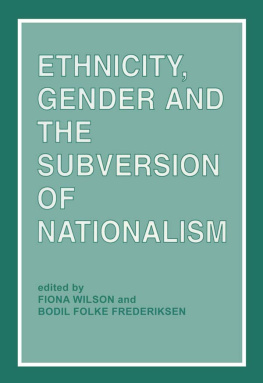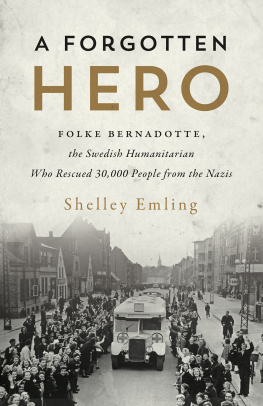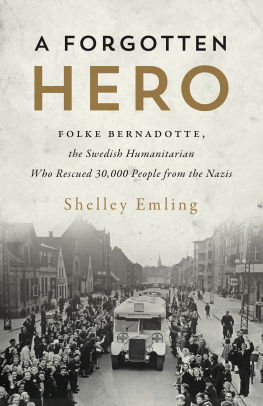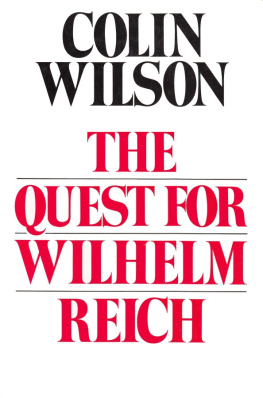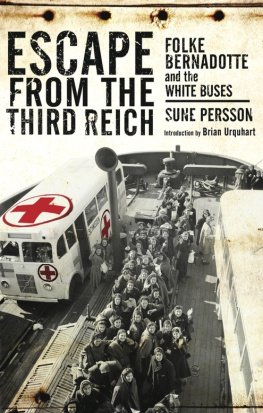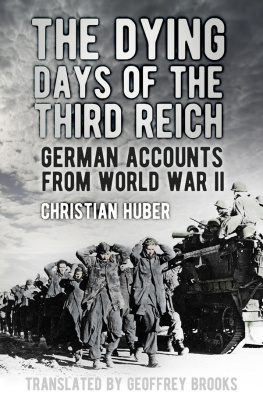This edition is published by PICKLE PARTNERS PUBLISHINGwww.picklepartnerspublishing.com
To join our mailing list for new titles or for issues with our books picklepublishing@gmail.com
Or on Facebook
Text originally published in 1945 under the same title.
Pickle Partners Publishing 2015, all rights reserved. No part of this publication may be reproduced, stored in a retrieval system or transmitted by any means, electrical, mechanical or otherwise without the written permission of the copyright holder.
Publishers Note
Although in most cases we have retained the Authors original spelling and grammar to authentically reproduce the work of the Author and the original intent of such material, some additional notes and clarifications have been added for the modern readers benefit.
We have also made every effort to include all maps and illustrations of the original edition the limitations of formatting do not allow of including larger maps, we will upload as many of these maps as possible.
THE CURTAIN FALLS Last Days of the Third Reich
Count Folke Bernadotte
Translated from the Swedish by Count Eric Lewenhaupt
ILLUSTRATIONS
The Author
Count Schwerin von Krosigk
Grand Admiral Karl Dnitz
Count Folke Bernadotte with his wife and son
Reichsfhrer SS Heinrich Himmler
Reichsfhrer SS Heinrich Himmler
Obergruppenfhrer Ernst Kaltenbrunner
Brigadefhrer Walter Schellenberg
Foreign Minister Joachim von Ribbentrop
Count Bernadottes Red Cross car at Schnhausen
PARIS November 1944
My plane left Bromma airfield, heading west, one day at the end of October 1944. My destination was Paris, via London. In Paris I was to confer with Allied representatives regarding Swedens share in post-war reconstruction and other problems. Paris was again a free city in a free land, and even at that period one could safely prophesy that the life of the Nazi empire would be, not a thousand years, but little more than a decade.
There are two episodes of my visit to Paris that I shall always recollect with especial pleasure. One was my meeting with General Eisenhower, the other a luncheon at which the Swedish Consul General in Paris, Raoul Nordling, was one of the guests.
On a lovely autumn day, October 2nd, my plane landed on a military airfield at Versailles, where the Allied G.H.Q. had been established. I was immediately conducted to the Supreme Commanders office, where the General, a powerfully built man in his fifties, received me with the unaffected friendliness and absence of side that are characteristic of Americans in high positions.
I had been in charge of the organization concerned with the internment of American airmen who had made forced landings in Sweden, and it was on the suggestion of General Curtis of the United States Air Force, who had been to Sweden in connection with this matter, that I visited the Supreme Commander.
General Eisenhower impressed me enormously. I felt that here was a man of real greatness, a personality as vital as he was generous and warm-hearted. He made one feel that he was relaxed and cairn, that he had complete confidence in his ability to reach his goal and carry out the gigantic task he had undertaken. Here, I felt, was a man who knew what he wanted and had the ability to get it. One of his most striking characteristics was his strong sense of humor. It was seldom absent during our talk, and it gave a charmingly human touch to his personality. The General is very human, and very humane. He expressed no hate for those who had been his antagonists in the second World War, and certainly none for the enemys military leaders.
His subordinates are unanimous as to the complete absence of any military rigidity in their Supreme Commander. This characteristic is perhaps the explanation of his greatest quality: the magnificent ability with which he has preserved the team spirit among the Western Allies and, often under conditions of great delicacy, adjusted and co-ordinated the sometimes conflicting wishes expressed from various quarters.
General Eisenhower began his talk by expressing his appreciation of what I had been able to do for American airmen in Sweden, and then went on to discuss the general situation. I noted particularly that he seemed to have a friendly understanding of Swedens political attitude. In any event, he stated in the course of this talk that he was of the firm opinion that Swedens neutral policy had been the right one, not only from her own point of view, but also from that of the Allies. This was an opinion that I encountered during several of my conversations with representatives of the British and American High Commands.
General Eisenhower then discussed with me the question of how and where Sweden could most effectively assist in the post-war problems. I informed him that I had had a preliminary discussion with representatives of UNRRA, and that the Swedish authorities and the Swedish Red Cross were anxious to hear the views of SHAEF. I mentioned that in certain quarters of UNRRA doubts had been expressed whether the offers of assistance by neutrals would be favorably received. Eisenhower strongly rejected this view and declared that all the assistance offered would be needed. Personally, he said, he thought it very natural that neutral countries should wish to take part in the task of restoration. He wished the occupied countries to establish their own administrations as soon as they were liberated, after which they would be regarded and treated as sovereign states with which neutral organizations could deal direct and plan post-war action.


